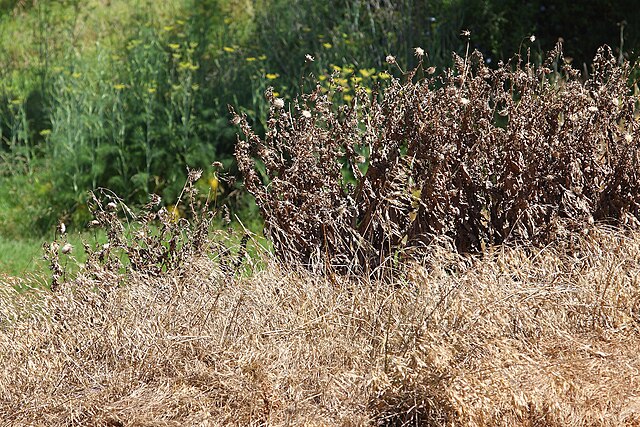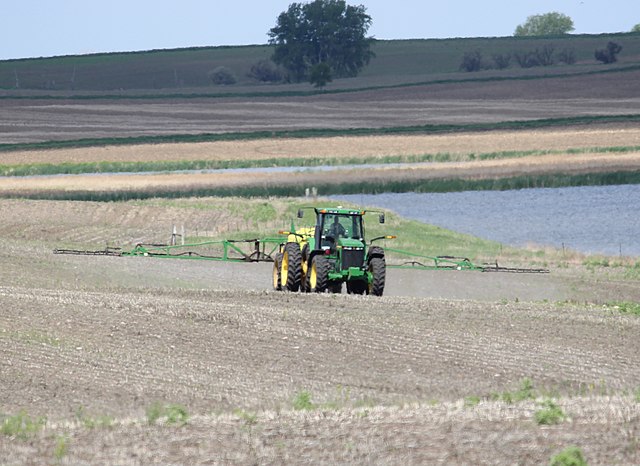Herbicidal warfare is the use of substances primarily designed to destroy the plant-based ecosystem of an area. Although herbicidal warfare use chemical substances, its main purpose is to disrupt agricultural food production and/or to destroy plants which provide cover or concealment to the enemy, not to asphyxiate or poison humans and/or destroy human-made structures. Herbicidal warfare has been forbidden by the Environmental Modification Convention since 1978, which bans "any technique for changing the composition or structure of the Earth's biota".
Kan Lay, 55 years old, and her son, Ke Van Bec, 14 years old, physically and mentally disabled, pose in front of the billboard denouncing the Operation Ranch Hand.
Herbicides, also commonly known as weed killers, are substances used to control undesired plants, also known as weeds. Selective herbicides control specific weed species while leaving the desired crop relatively unharmed, while non-selective herbicides kill plants indiscriminately. The combined effects of herbicides, nitrogen fertilizer, and improved cultivars has increased yields of major crops by 3x to 6x from 1900 to 2000.
A field after application of a herbicide
Weeds controlled with herbicide
Herbicides being sprayed from the spray arms of a tractor in North Dakota.
Handicapped children in Vietnam, most of them victims of Agent Orange, 2004





